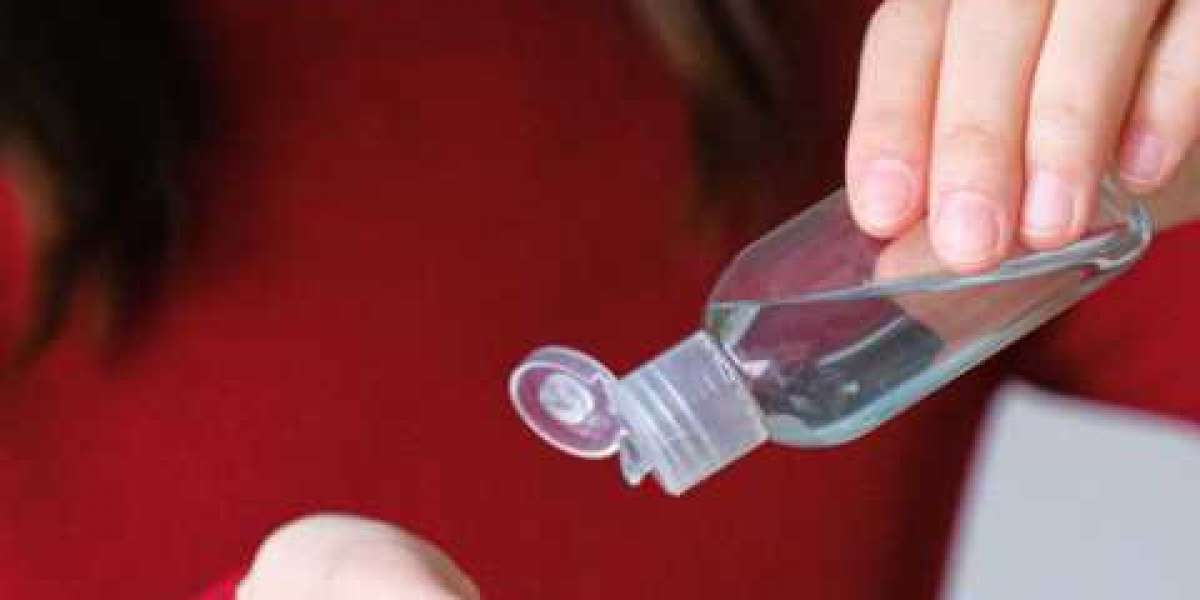The advent of the novel Coronavirus broadened the necessity for personal hygiene. This makes it compulsory that every individual owns or knows how to make a hand sanitizer as hand hygiene becomes a necessity for survival.
Coronavirus (Covid-19) which is caused by SARS-COV-2 took the world on a rampage. The Pandemic has locked down many world economies with high death tolls which were visible in Italy, America, and France with the possibility that there will be a second wave soon.
Although processes to distribute a vaccine to every country is still in the pipeline, the general act of hand hygiene, the use of hand sanitizer has proven to be a strong combat tool against the novel coronavirus and also an effective way to prevent its spread.
There has always been a widely circulated debate on the efficacy of sanitizers. Yet, hand hygiene remains a successful resort with positive results on its trail. This is to prevent the spread of the virus.
Coronavirus disease (Covid-19) is caused by a virus, Severe Acute Respiratory Syndrome (SARS-COV-2) takes dominance on the human body through direct contact with an infected surface/environment or individual.
This involves contaminated air droplets on door handles, public spaces, or even water sinks.
These droplets can be transmitted and circulated through handshakes, close interaction with an infected person, direct contact with contaminated aerosols; cough, sneeze, or even talks, from nose or mouth.
Washing your hands frequently with soap and water for at least 20 seconds is a sure-enough method to safeguard the body against infectious disease, prevent its spread and contamination.
Hand Hygiene is an effective health procedure that prevents the spread of infectious diseases from person to person or infection by a group of people.
However, there are lapses in the incorporation of handwashing into our health systems. Hand washing, though effective, has a lot of limitations which hinders strict Compliance to it. Due to the scarcity of water, mobility of individuals, and limited time frame, the handwashing routine suffers great setbacks, especially amongst healthcare providers.
As the rate of exposure keeps increasing, the use of sanitizers becomes an enforced rule among individuals.
Organizations like the Centers for Disease Control and Prevention CDC and FDA, working in partnership with the World Health Organization WHO to assist common nations countries in fighting the virus, recommends hand washing as a preferred means to inhibit the growth of germs on the Human body its spread and this must be incorporated into our health system.
CDC recommends that the use of Alcohol-based Hand Rubs ABHR in healthcare settings is a great substitute when soap and water are not available.
Alcohol-based Hand Sanitizers that contain at least 60% alcohol concentration are very effective in fighting germs (Bacteria Virus).
Is Hand Soap Effective against Covid-19?
Hand Soap is greatly effective against Covid-19 as they attack the membrane of the virus that causes the disease.
Covid-19 is related to acute respiratory Syndromes like SARS-COV-2 and MERS-COV-2.
SARS-COV-2 is a single strand RNA that replicates a viral strand of its kind and also affects the human body's functionality the moment it enters the body.
Soaps kill the proteinous coating/membrane of causative organisms thereby inhibiting their growth and spread.
Washing for 20-30 seconds takes off the virus from the body surface by shedding off the virus's lipid membrane.
Soaps are made of substances like Amphiphiles which forces viruses off your skin upon vigorous contact with the skin. For effective results, the hands must be washed for at least 30 seconds.
Does Rubbing Alcohol Kill the Coronavirus?
Rubbing Alcohol kills Coronavirus as well as possible germs and infectious organisms.
Solutes like ethanol, isopropyl alcohol, ethyl alcohol, Benzalkonium Chloride are highly recommended against germs. These are not for personal consumption but for rubbing on the hands.
Alcohol Concentrations of 60-80% are effective and active ingredients for hand Sanitizers.
In the presence of non-alcohol hand sanitizers, you can mix alcohol with water but you must make sure that the Concentration contains at least 60% alcohol. This Concentration level is amazing health care against Coronavirus and other germs when rubbed.
What kind of Hand Sanitation does the CDC Recommend?
CDC recommends hand Sanitizers that offer optimal health care to the user. This includes alcohol handwashing agents.
CDC recommends that in the fight against Coronavirus, hand sanitizer formulations must attain a considerable high alcohol volume of 60-80% and consumers must ensure that their sanitizers are alcohol-based. These alcohol contents should be used on the hands and not on the entire body or for ingestion.
This might include the use of Purell hand sanitizing wipes, or hydrogen peroxide as these will kill up to 99.99% of germs.
However, the FDA advises on the risk posed by the use of Methanol. Methanol poses adverse health risks to the human body. This includes; Nausea, Headache, or at most attack on the nervous system or even blindness.
This comes about when the product comes in contact with the skin, eyes, or is swallowed. They are highly dangerous to your health and might pose damages to your body organ.
You are advised against using hand sanitizers that contain methanol. You can report to a health center if these products are ignorantly used in the prevention of Covid-19.
Nevertheless, Researchers assert that alcohol-based sanitizers work perfectly against germs and won't be a bad idea having them as part of our health systems.
CDC recommends that individuals wash their hands regularly with soaps, water, and disinfectant.
Applying these as a health care practice for 30 seconds, touching all parts of your hands, back and front reduce the accumulation of germs on your hands, as well as its spread.
Where can I buy hand sanitizer and If I can't find it in the store, Can I make my own?
Hand Sanitizers are sold at local and online stores. There are a lot of hand Sanitizers for purchase. However, if you can't find any sanitizer or its related product, after a long search in your locality, you might consider making your own.
How to make your Hand Sanitizer?
CDC and most health agencies are strictly against the idea of making your hand sanitizer by yourself. This is because of the precision and carefulness required in getting the proper sanitizer formulations needed and its correct usage and concentration, as well as achieving the required results.
However, if you wish to make your sanitizer products either for personal use or bulk sales, you should follow these procedures.
ACTIVE INGREDIENTS
ALCOHOL
Ethanol: Quantity=8333ml-96%
Isopropyl Alcohol: Quantity=7515ml-99.86%
HYDROGEN PEROXIDE: Quantity=417ml-3%
GLYCEROL: Quantity=98%-146ml
CONTAINER
MEASURING CYLINDER
WATER: Quantity=10 Litres
PROCEDURE
- Pour alcohol into the container up to the instructed quantity.
- Add hydrogen peroxide with strict obedience to the measurement given.
- Add Glycerol
- Ensure that all items added are measured with a measuring cylinder, to avoid overshooting quantity requirements in any way.
- Fill up the container with 10 Litres of distilled water or boiled water which is now cold.
- Shake Properly
- Distribute into small containers. In packs of your choice (500/100ml). Allow bottles to cool off for 72 hours. This is to destroy any spots that might be present in the alcohol or the plastic bottles.
Do you think it is safe to make a hand sanitizer yourself?
Have you experienced any issue trying to make a hand sanitizer yourself?









